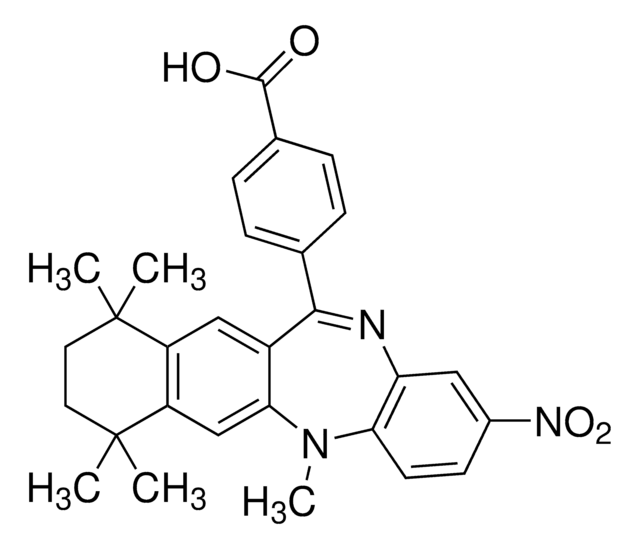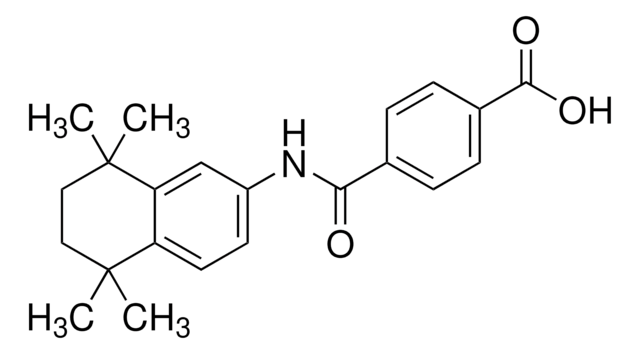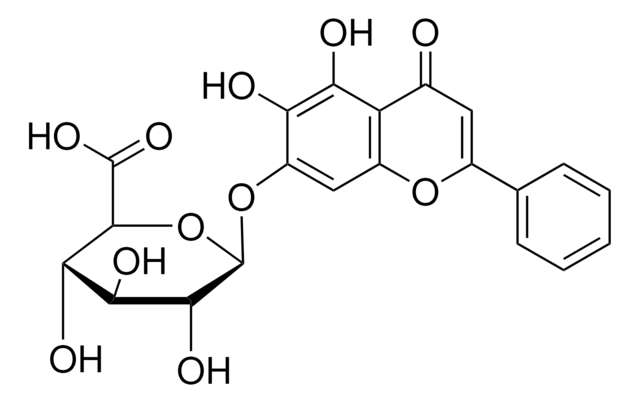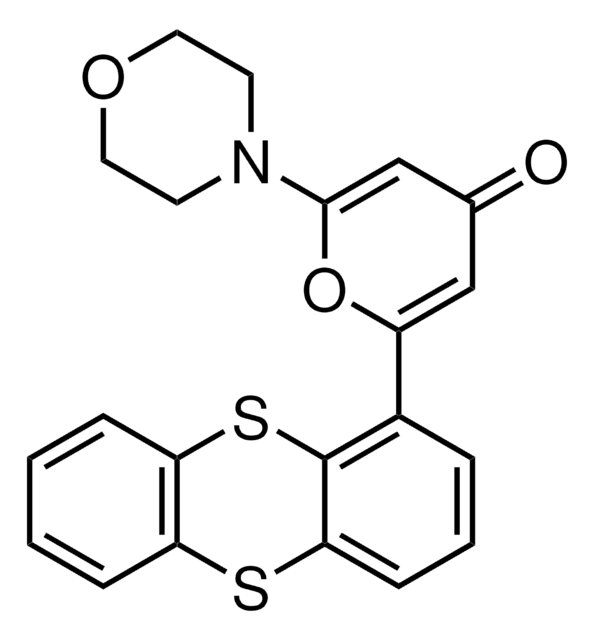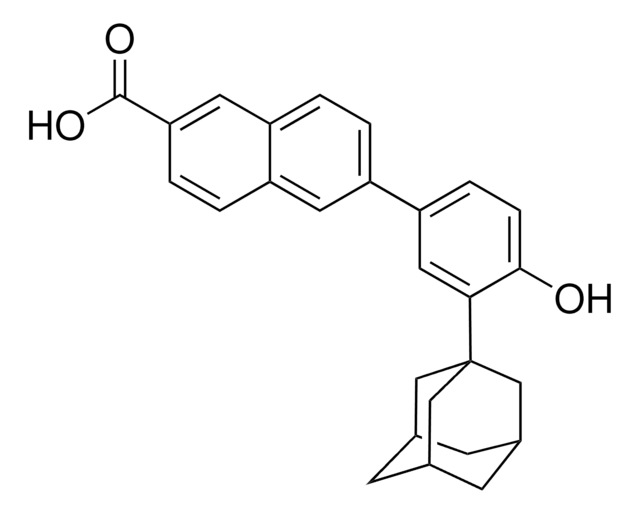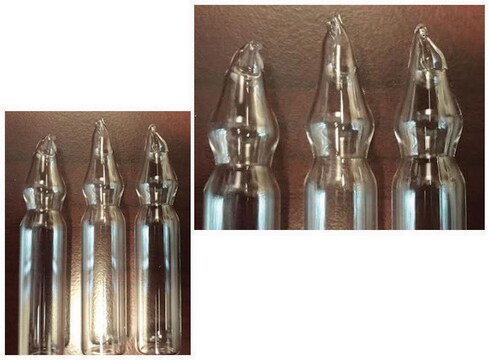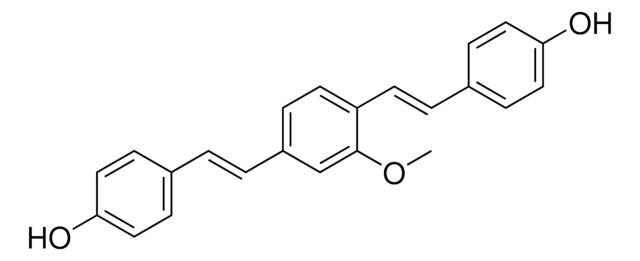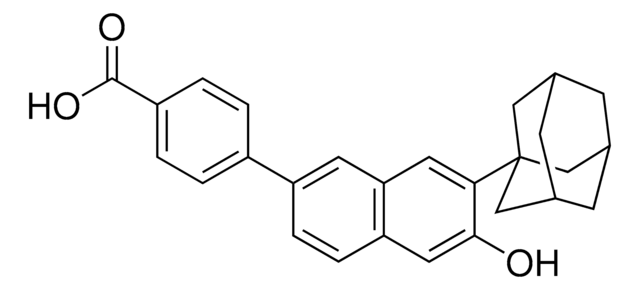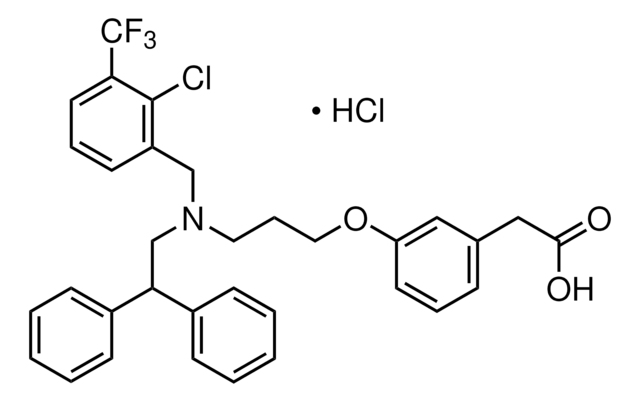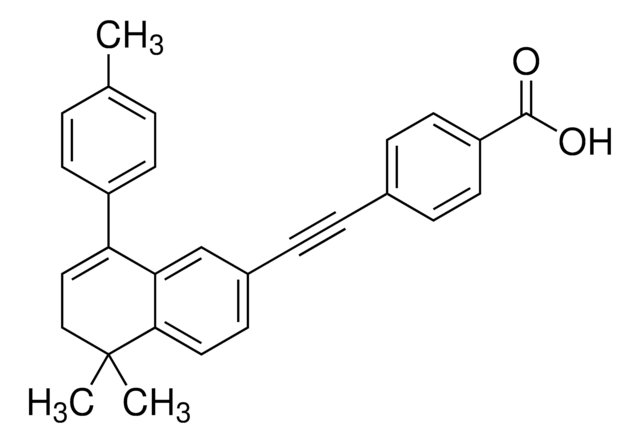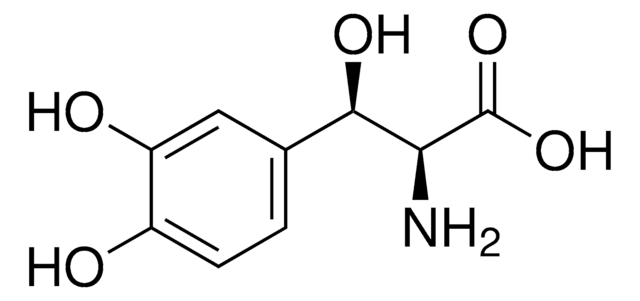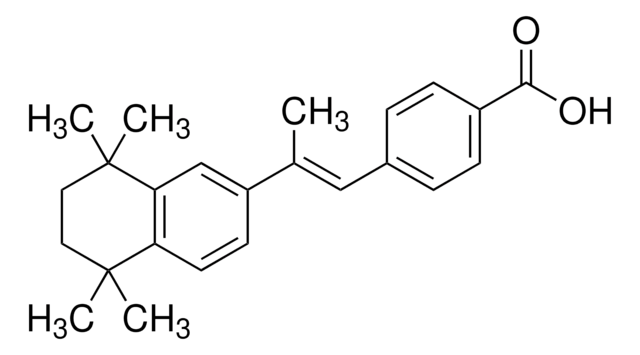SML0282
Bexarotene
≥98% (HPLC)
Synonym(s):
4-[1-(5,6,7,8-Tetrahydro-3,5,5,8,8-pentamethyl-2-naphthalenyl)ethenyl]benzoic acid, LGD-1069, SR-11247
About This Item
Recommended Products
Assay
≥98% (HPLC)
form
powder
color
white to beige
solubility
DMSO: ≥15 mg/mL (warmed)
storage temp.
−20°C
SMILES string
C=C(C1=CC=C(C(O)=O)C=C1)C2=C(C)C=C3C(C(C)(C)CCC3(C)C)=C2
InChI
1S/C24H28O2/c1-15-13-20-21(24(5,6)12-11-23(20,3)4)14-19(15)16(2)17-7-9-18(10-8-17)22(25)26/h7-10,13-14H,2,11-12H2,1,3-6H3,(H,25,26)
InChI key
NAVMQTYZDKMPEU-UHFFFAOYSA-N
Gene Information
human ... RXRA(6256) , RXRB(6257) , RXRG(6258)
Application
- to study its effect on human oral squamous cell carcinoma (OSCC) cell lines
- to test for cooperative cell killing of cutaneous T cell lymphoma (CTCL) with 966
- as a standard in HPLC for determining its potential impurities in drug substances and drug products
- to investigate its effects on the changes in renal, cardiac, hepatic, and pulmonary expression/activity of inducible nitric oxide synthase (iNOS) and CYP4F6
- to analyze the involvement of retinoid x receptor (RXR) homo or permissive heterodimers
- to study its potential impurities in drug substances and drug products
Biochem/physiol Actions
Features and Benefits
Storage Class Code
11 - Combustible Solids
WGK
WGK 3
Flash Point(F)
Not applicable
Flash Point(C)
Not applicable
Certificates of Analysis (COA)
Search for Certificates of Analysis (COA) by entering the products Lot/Batch Number. Lot and Batch Numbers can be found on a product’s label following the words ‘Lot’ or ‘Batch’.
Already Own This Product?
Find documentation for the products that you have recently purchased in the Document Library.
Customers Also Viewed
Our team of scientists has experience in all areas of research including Life Science, Material Science, Chemical Synthesis, Chromatography, Analytical and many others.
Contact Technical Service
